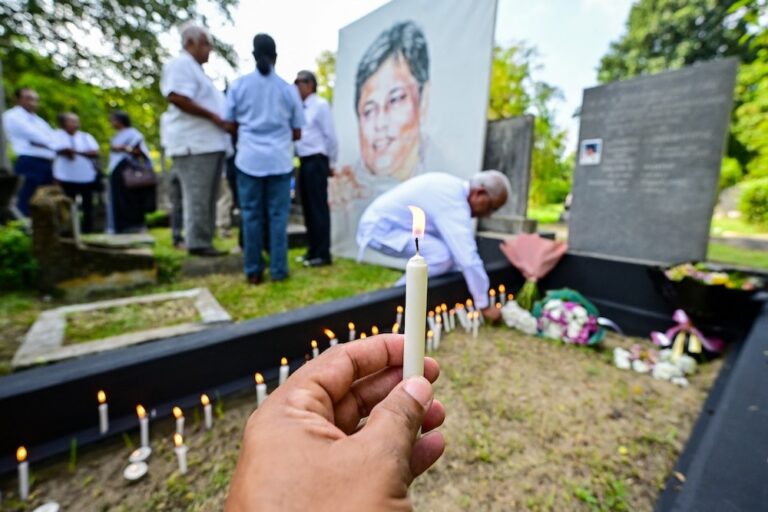(FMM/IFEX) – The following is an FMM press release: State security forces censor media and delete photos taken by photojournalists 17 October 2007, Colombo, Sri Lanka – It was reported to the Free Media Movement (FMM) that on two recent occasions Sri Lankan security forces openly censored media and barred photojournalists from carrying out their […]
(FMM/IFEX) – The following is an FMM press release:
State security forces censor media and delete photos taken by photojournalists
17 October 2007, Colombo, Sri Lanka – It was reported to the Free Media Movement (FMM) that on two recent occasions Sri Lankan security forces openly censored media and barred photojournalists from carrying out their duties. FMM expresses its concern that such actions are detrimental to freedom of expression and further erode media freedom in Sri eLanka.
In one incident, security forces forced journalists to leave the scene of a protest by citizens in front of United Nations (UN) office in Jaffna, in the embattled North of Sri Lanka, who had gathered to meet UN Human Rights Commissioner Louise Arbour during her visit to the Jaffna peninsula on 12 October 2007. Afterwards, security officials grabbed th camera of “Yal Thinakkural” journalist Sellaiyah Ruban and deleted all photos of the incident.
On 17 October, security forces prevented photojournalists from taking photographs of a military truck transporting munitions which had met with an accident in Kosswatta, a suburb of Colombo. Security officials even banned the use of mobile phones at the scene. A camera belonging to Berti Mendis, a photographer for “The Sunday Times”, was taken and its film exposed, destroying all his photos.
FMM condemns both incidents. The actions of the Sri Lankan security forces demonstrate a callous disregard for freedom of expression and are a telling marker of the intolerance that increasingly challenges the right of journalists to report in the public interest. In FMM’s opinion, there was no national security risk in covering Louise Arbour’s visit in Jaffna or in photographing an army truck that had met with an accident. Furthermore, it is exaggerated to suggest that photographs of munitions expose state secrets.
Both these incidents severely vitiate the government’s claim that there is no media censorship in Sri Lanka. These incidents demonstrate how authoritarian decisions are imposed on media in the name of national security by various military officers.
The end result, sadly, is an ill-informed citizenry and media unable to perform their basic duties. The FMM condemns this disturbing trend of censorship by the military and is alarmed at the impact such actions have on democratic governance in Sri Lanka.


